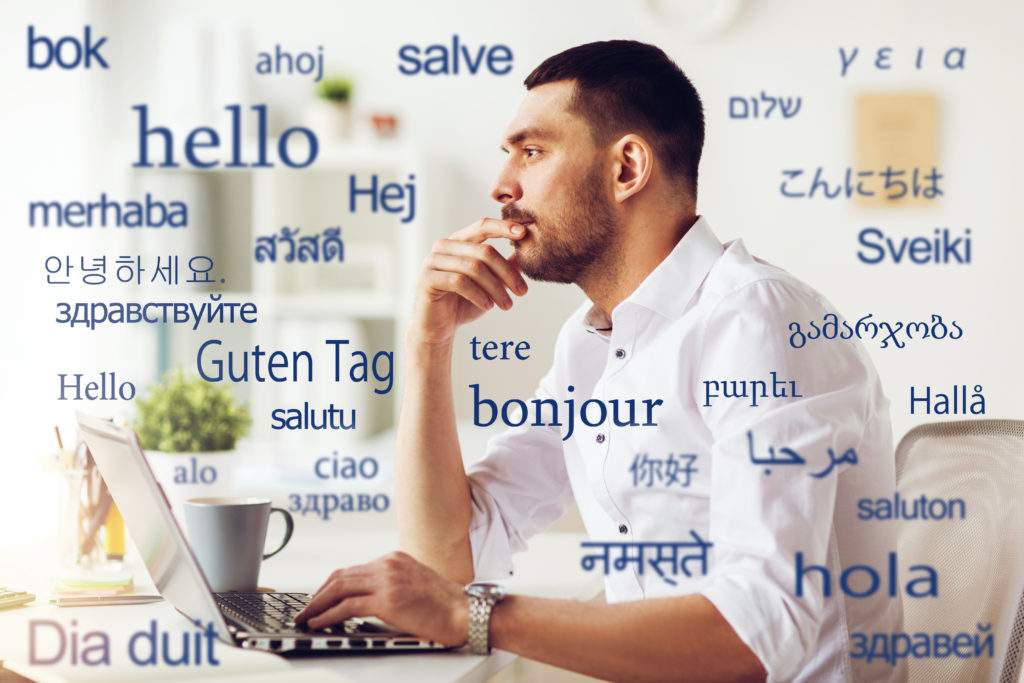vacationhavenhome.com – When traveling to a new country, one of the most rewarding experiences is connecting with locals and immersing yourself in their culture. While many places around the world have some level of English-speaking locals, speaking even a few words in the local language can significantly enhance your travel experience. Learning basic local phrases is not just about overcoming language barriers; it’s a way to show respect, build rapport, and make your travels smoother and more enjoyable.
In this article, we explore the benefits of learning a few essential phrases before you travel, provide you with some of the most important phrases for various languages, and offer tips on how to learn them effectively.
Why Learn Basic Local Phrases?
- Show Respect for Local Culture
Speaking the local language, even in a rudimentary way, shows that you respect the country you’re visiting. It demonstrates that you’re not just there as a tourist but are interested in connecting with the people on a deeper level. Locals often appreciate any effort, no matter how small, to speak their language, which can help you form a positive relationship with them. - Enhance Your Travel Experience
Knowing the basics can help you navigate a variety of situations, from ordering food to asking for directions. It can also open the door to spontaneous conversations, local recommendations, and a better understanding of the culture. Whether you’re at a market in Morocco, ordering street food in Vietnam, or asking for directions in Paris, a few words in the local language can make your journey more enriching. - Avoid Misunderstandings
While English is spoken in many parts of the world, not everyone understands it well. Learning key phrases like “excuse me” or “how much is this?” can help you avoid communication mishaps. It also ensures that you’re not relying solely on gestures, which can sometimes be misinterpreted. - Build Rapport with Locals
Language is a great icebreaker. When you try speaking the local language, you may find that people are more open, friendly, and willing to help you. Locals often appreciate the effort and might even teach you more words or offer you insights into their culture.
Basic Phrases to Learn Before You Travel
While you don’t need to become fluent, there are a few key phrases that can be useful in almost any situation. Here are the essential phrases to learn:
1. Greetings & Polite Phrases
- Hello: A friendly greeting goes a long way.
- Example: Hola (Spanish), Bonjour (French), Ciao (Italian)
- Good morning / Good evening: Greeting someone at different times of the day.
- Example: Buenos días (Spanish), Bonjour (French), Guten Morgen (German)
- Goodbye: Saying farewell politely.
- Example: Adiós (Spanish), Au revoir (French), Arrivederci (Italian)
2. Expressing Gratitude
- Thank you: This simple phrase is universally appreciated.
- Example: Gracias (Spanish), Merci (French), Danke (German)
- Please: A word that shows courtesy in requests.
- Example: Por favor (Spanish), S’il vous plaît (French), Bitte (German)
3. Asking for Help
- Excuse me: Useful when you need someone’s attention or to apologize for bumping into someone.
- Example: Perdón (Spanish), Excusez-moi (French), Entschuldigung (German)
- Can you help me?: A straightforward phrase to ask for assistance.
- Example: ¿Me puedes ayudar? (Spanish), Pouvez-vous m’aider? (French)
4. Directions and Location
- Where is…?: A critical phrase when you’re lost or need specific locations.
- Example: ¿Dónde está…? (Spanish), Où est…? (French), Wo ist…? (German)
- How much is this?: Essential when shopping or at a market.
- Example: ¿Cuánto cuesta esto? (Spanish), Combien ça coûte ? (French), Wie viel kostet das? (German)
5. Basic Conversation Starters
- How are you?: A great conversation opener.
- Example: ¿Cómo estás? (Spanish), Comment ça va? (French), Wie geht’s? (German)
- What is your name?: A friendly way to introduce yourself.
- Example: ¿Cómo te llamas? (Spanish), Comment vous appelez-vous? (French), Wie heißen Sie? (German)
Effective Ways to Learn Basic Phrases
1. Use Language Apps
There are numerous apps designed to help travelers learn essential phrases. Apps like Duolingo, Babbel, and Memrise offer beginner-friendly lessons that teach vocabulary and basic sentence structure. These apps often include audio recordings to help with pronunciation, which is key to speaking a language confidently.
2. Watch Video Tutorials
YouTube has a wealth of video tutorials for learning basic phrases in any language. Many language teachers break down the pronunciation and teach practical phrases for everyday scenarios. Try searching for “survival phrases in [language]” or “[language] for travelers.”
3. Use Flashcards
Flashcards are a tried-and-true method of learning. Apps like Anki or Quizlet allow you to create digital flashcards for phrases you want to memorize. You can even find pre-made decks for various languages that cover the essential vocabulary for travelers.
4. Practice with a Language Exchange Partner
Language exchange websites and apps, such as Tandem or HelloTalk, connect you with native speakers. You can chat via text or voice, practice pronunciation, and even learn about local customs and etiquette through conversation. Practicing with a native speaker is one of the most effective ways to improve your language skills.
5. Listen to the Language
Immersing yourself in the language before you go can help you get a feel for pronunciation. Listen to podcasts, music, or movies in the language you’re learning. You don’t have to understand everything, but getting used to the sounds and rhythms of the language will improve your comprehension.
Tips for Using Phrases While Traveling
- Start with the Basics: Even if you’re not fluent, start by learning the most common greetings and polite phrases, like “hello,” “thank you,” and “please.”
- Learn Numbers: Numbers are essential for understanding prices, addresses, and time. Knowing how to count in the local language will help you immensely in markets, restaurants, and while asking for directions.
- Be Patient and Open to Mistakes: Language learning takes time, and it’s okay if you make mistakes. Most locals will appreciate your efforts and may even help correct you in a friendly way.
- Use Gestures: If you don’t know the right words, don’t be afraid to use gestures or body language. This can often help convey your message when words fail.
- Carry a Phrasebook or Use Translation Apps: If you’re worried about language barriers, you can always carry a small phrasebook or use a translation app like Google Translate or iTranslate. These can help you get by in tricky situations.
Conclusion
Learning basic local phrases is an invaluable tool for any traveler. Not only does it help you navigate through different countries, but it also enriches your cultural understanding and creates authentic connections with locals. Whether you’re visiting a small village in Italy or exploring a bustling market in Thailand, speaking the language, even at a basic level, will make your journey more meaningful and enjoyable. So, next time you’re planning a trip, take the time to learn a few key phrases—you’ll be amazed at the difference it can make!





